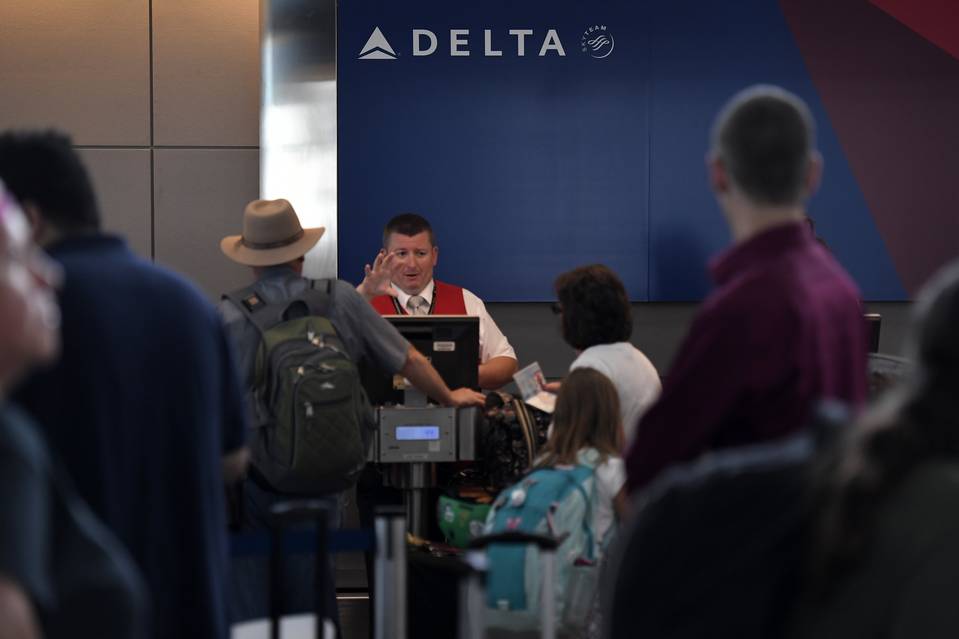
Americans hate the airlines, and with good reason. Recent charges for things they used to get for free are driving them crazy: baggage fees, change fees, extra charges for normal size seats, charges for premier access. Sure, they may be getting cheaper prices, but they’re also being sliced up in small pieces. The airlines are getting rich off their hostage passengers.
United and Delta both had rough weeks this week. Both airlines bumped scores of passengers because of operational problems (Delta weathered about 3,000 flight cancelations this week), but only one ended up facing world-wide outrage and the other managed to come out much more cleanly.
United and Delta have different policies when it comes to overbooked flights, and in light of recent events, it’s worth looking at the differences. When it comes to bumping passengers, Delta is more generous than United and other airlines, the Wall Street Journal reports. For example, Delta offers more incentives like gift vouchers to avoid forcefully bumping passengers.
On Sunday, United decided it had to put four crew members on a flight from Chicago to Louisville, Kentucky. The airline asked for volunteers, offering a hotel for the night and a voucher for $800. United claims they raised the offer to $1,000, but there were no takers. The airline did not raise the offer further.
Normally, issues surrounding overbooked flights are supposed to be resolved by gate agents before boarding the plane. In this case, the plane was fully boarded before United realized the error. The airline then selected four passengers, “at random,” to bump involuntarily. Three agreed to get off the plane, but one man refused and was dragged off by airport police.
Video of the incident horrified people world-wide, and at the same time “confirmed what many see as typical airline treatment of passengers as cargo not customers.”
What’s more, United ultimately cited an incorrect rule for de-boarding the passenger. As law expert John Banzhaf points out, the law only permits United Airlines to remove customers from aircraft under very specific circumstances, including unruly behavior, intoxication or medical concerns. Their action was definitely illegal.
Delta, meanwhile, had a week of cancellations after severe storms ripped through its Atlanta hub. The airline ended up with planes and crews out of position and faced crew shortages. Standby lists grew. Delta, with flights severely overbooked, also faced the challenge of getting pilots and flight attendants on flights so they’d be in place for future flights.
The airline ended up delighting some customers by handing out gift cards to entice people to voluntarily give up seats. Customers reported offers of $800, $1,000 and even $1,350 per passenger in gift cards from American Express , Bloomingdales and Best Buy . Many took to social media to gloat.
Delta’s willingness to go above $1,000 may have lured some volunteers, and the offer of gift cards was extremely appealing to many fliers. Some veteran travelers discount airline vouchers because they can be hard to use, and since they can only be cashed in for trips, infrequent fliers may not see much value either. But gift cards are just like cash in consumers’ pockets.
American Airlines has been accused of being the worst of all.
Read more travel industry secrets on our blog.
Feel free to write to: info@cooktravel.net.

 Save up to 60% on Business Class. Call 1-800-435-8776
Save up to 60% on Business Class. Call 1-800-435-8776
Leave A Comment